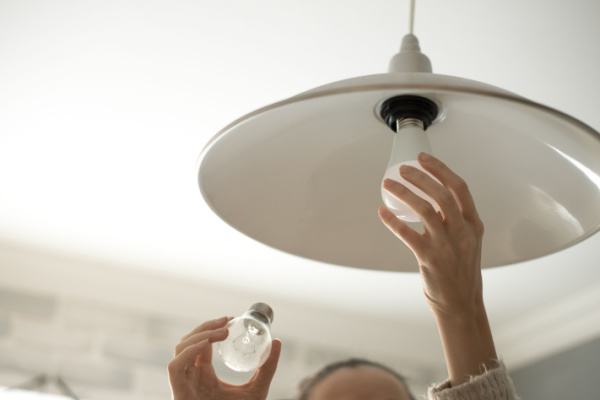Incandescent lightbulbs have been providing light in American homes since the 1800s, when Thomas Edison patented the bulbs. But now, the nation has evolved into a more energy-efficient society and LED lights have become the new norm. Starting in August, Americans will only be able to purchase LED lights from retailers across the nation as an official ban on incandescent lightbulbs will be in full effect.
Rules finalized by the Energy Department (DOE) last year require manufacturers to sell energy-efficient light bulbs, accelerating a longtime industry practice to use compact fluorescent and LED bulbs that last 25 to 50 times longer than incandescent bulbs. The Trump administration had slowed an earlier phaseout of incandescents, saying it was targeting rules that burden businesses. But officials say the move will help Americans save money and benefit the environment.
The DOE claims that discontinuing inefficient incandescent lights will save Americans nearly $3 billion yearly and substantially reduce carbon dioxide emissions over 30 years. Swapping out the bulbs is projected to cut planet-warming carbon emissions by 222 million metric tons over the next 30 years, an amount equivalent to emissions generated by 28 million homes in one year.
At Straus Paint & Hardware in Queens, the word “incandescent” won’t be seen on any new purchase orders. “We saw this coming a long time ago, tried to phase them out for a while,” said Gary Straus, the owner of Straus Paint & Hardware. The store shelves were stocked with almost every shape, size and lumens of LED lights imaginable. “It will save energy and it will be cheaper in the long run,” Straus said.
The Department of Energy said LED lights provide more light using 75% less energy than incandescent lights. LEDs also last about 25 times longer. Halogen bulbs and compact fluorescent lights (CFL) will also be banned, but that’s for public health reasons. Those bulbs contain mercury.
You’ll no longer be able to purchase incandescent lights starting in July. The DOE isn’t totally banning all incandescent lights, just those most commonly used in homes and that are not energy efficient. The DOE warned manufacturers and retailers about the change at the beginning of the year in January, with full enforcement beginning in July 2023. Manufacturers who violate the ban could face a maximum penalty of $542 per illicit bulb.
The average cost of an LED light bulb ranges from $5 to $7 each while an incandescent light bulb would normally range from $2 to $3 a bulb, according to a report from Lifehacker. However, LED bulbs save money in the long run because they use less energy to run and last longer. Despite the long-term benefits, some people said the decision to make the light switch should be their own, not the government’s.
While the ban will be in effect soon, customers can still buy what is left of incandescent lights that are still being sold in stores. Even when they’re no longer on store shelves, you can still use incandescent lights in your home.
—
Photo Credit: Rasstock / Shutterstock.com
